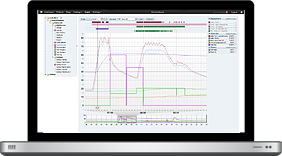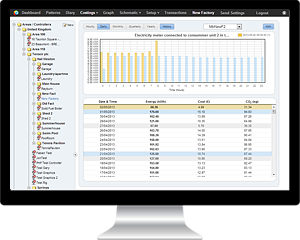Competition and Markets Authority presents bold energy market reform proposals

The Competition and Markets Authority (CMA) has set out a comprehensive and wide-ranging package of remedies to address the problems hindering competition, reform the energy market, open up competition and help customers get a better deal.
Although competition has benefited those customers who have switched to competitively priced fixed-term deals, around 70% of the domestic customers of the 6 largest energy firms are still on the more expensive ‘default’ standard variable tariff (SVT).
The CMA’s latest analysis reveals that the potential savings for these customers have risen substantially over the past 2 years so that the average customer could save over £300 by switching to a cheaper deal. The CMA’s analysis also shows that, in total, customers could have been paying about £1.7 billion a year more than they would in a competitive market.
The main proposed measures to be introduced include an Ofgem-controlled database which will allow rival suppliers to contact domestic and microbusiness customers who have been stuck on their supplier’s default tariff for 3 years or more with better deals, as well as a transitional price control for the 4 million households who are on prepayment meters, who face limited competition from suppliers and whose ability to switch and find better deals is far more limited than for credit and direct debit customers.
Other proposed measures include strengthening the ability and incentives for third party intermediaries such as price comparison websites (PCWs) to help customers find better deals by giving them access to relevant information like customer meter numbers and allowing them to negotiate exclusive deals with suppliers. This will be accompanied by a requirement for PCWs to be transparent about how they cover the market and the information on display.
The CMA set of proposals also includes removing restrictions on the ability of new suppliers to compete for prepayment customers and reduce barriers such as debt issues that make it difficult for such customers to switch and a requirement that the approximately 700,000 households on non-Economy 7 restricted meters are allowed to switch to cheaper single-rate tariffs without requiring a meter replacement.
Roger Witcomb, Chairman of the energy market investigation, said:
“We have found that the 6 largest suppliers have learned to take many of their existing domestic customers – some 70% of whom are on ‘default’ standard variable tariffs – for granted, not just over prices, but with their service and quality. Yet in those parts of the retail markets where competition is working, customers are benefiting to the tune of hundreds of pounds a year by switching. We’re proposing a wide range of bold, innovative measures to enable competition to grow further across the market so that millions more households will benefit.”






